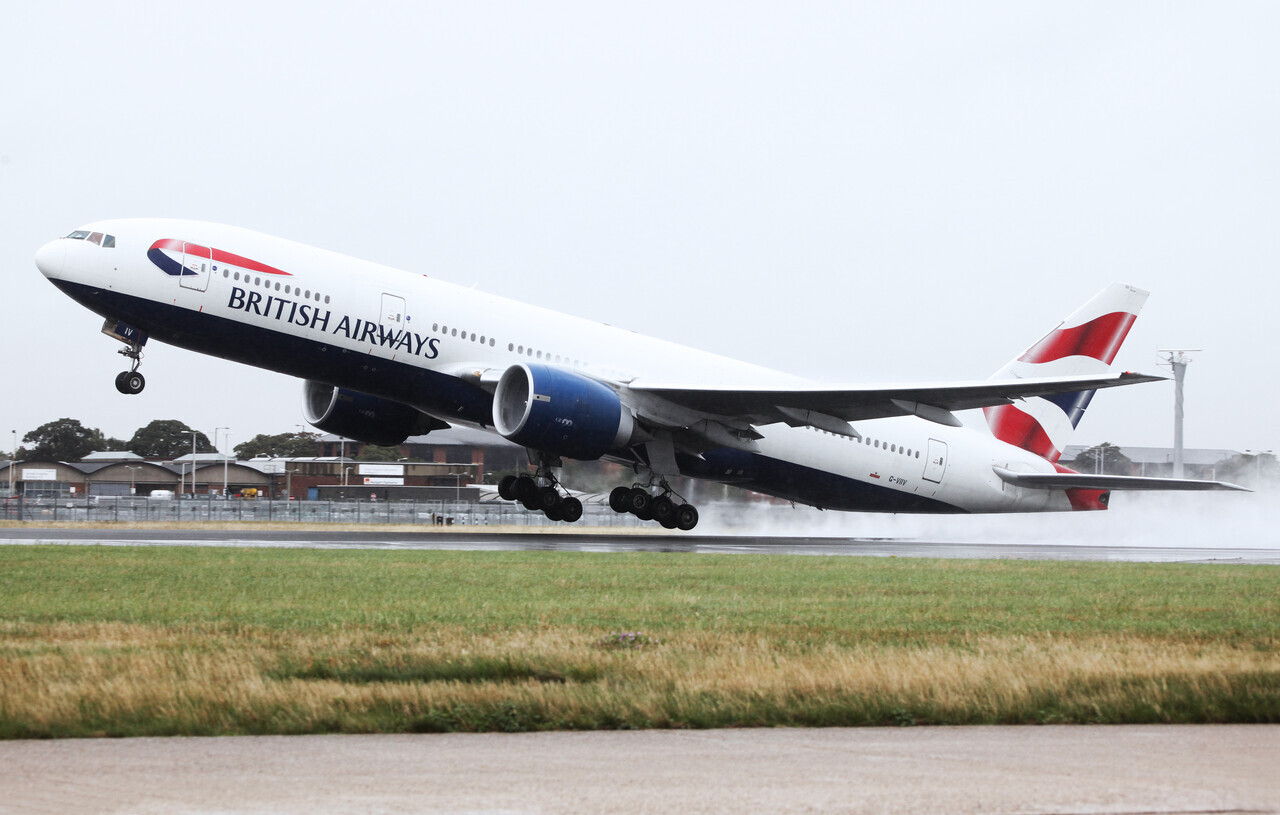How Gulf airlines will change everything about international air travel

Skift Take
Qantas Airways Ltd.'s decision to drop a 17-year pact with British Airways in favor of a deal with Dubai-based Emirates reveals the potential for fast-growing Gulf carriers to shatter the established airline order.
The 10-year accord, announced yesterday, will lead Qantas to scrap its revenue-sharing pact with British Airways to gain access to 70 Emirates destinations. While the Australian carrier will carry on code-sharing with BA, the move puts in doubt the standing of the Oneworld global alliance the pair helped forge.
Emirates, Qatar Airways Ltd. and Etihad Airways are exploiting the Gulf's position at the heart of inter-continental flight paths to build hubs served by waves of departures using the world's biggest wide-body planes. That's won them a higher share of lucrative long-haul traffic and is pressuring earnings at network operators including British Airways and Qantas.
"Things are changing," Emirates president Tim Clark told reporters in Sydney. "The international airline community needs to align itself to what is going on in the 21st century, not what was going on in the back end of the 20th century."
‘New thinking'
Groups such as Oneworld, which also includes AMR Corp.'s American Airlines, and the rival Star and SkyTeam combinations, are an "anachronism," better suited to the aviation industry of a previous generation, according to Emirates, which began flying in 1985 and has disavowed any interest in alliances.
"This is the beginnings of perhaps a new thinking into how we should be organizing and understanding traffic flows, and how they have changed over the last 15 to 20 years," Clark said.
Revenue-sharing accords like those London-based British Airways has had with Qantas and began with American Airlines in 2010 are the deepest form of airline cooperation short of full mergers, allowing carriers to split sales receipts and expenses, coordinate prices and operate integrated timetables.
Global alliances, looser relationships which allow members to align frequent-flier programs, share lounges and better align schedules and ticketing, are "weakening" because the major Gulf carriers aren't members, Neil Hansford of consultants Strategic Aviation Solutions said by phone from Salamander Bay, Australia.
Ownership curbs
Alliances have also failed to deliver in areas such as joint aircraft purchasing and negotiation of airport access and are essentially a response to curbs on ownership, according to John Strickland, director of JLS Consulting in London. Foreign companies are restricted to 25 percent stakes in U.S. carriers, while the Europe Union has a 49 percent limit.
Still, the three worldwide groupings control about 60 percent of air traffic, according to Airline Business magazine.
Star, led by Deutsche Lufthansa AG and United Continental Holdings Inc., is largest with about 25 percent and annual revenue of $202 billion, while SkyTeam, which includes Air France-KLM Group and Delta Air Lines Inc., has 20 percent and Oneworld about 15 percent, the trade title estimates.
Qantas will remain in Oneworld and continue joint sales with British Airways via code-shares, which allow carriers to sell tickets on each other's flights as if they were their own.
In scrapping the British Airways pact Qantas will shift its European transfer hub from Singapore to Dubai. Whereas onward trips from the Asian city-state with it or BA reach only London and Frankfurt, where passengers must change plane for other cities, Emirates directly serves 30 European locations with 55 daily departures, "meaning one less potential stop on a journey from Australia," according to flight-schedule data provider OAG.
Seeking options
The deal with Emirates marks "a positive development," though benefits will take time to materialize because of the size of deficits at Qantas, which had a A$450 million ($465 million) loss in the 12 months through June, Standard & Poor's said today. S&P, which was already reviewing Qantas, cut the credit rating one level to BBB-, the lowest investment grade.
Qantas shares closed 5 percent higher at A$1.26 before the rating announcement, after adding 6.7 percent yesterday.
BA, which formed International Consolidated Airlines Group SA via a merger with Spain's Iberia last year, is meanwhile talking with a number of airlines about "alternative options" after the Qantas split, IAG CEO Willie Walsh said yesterday.
The U.K. company, whose stock rose 3.5 percent yesterday and was unchanged at 9:06 a.m. today, said the Qantas venture is a small part of its network and that "the world has changed" since the tie-up began in 1995, with any new arrangement likely to more squarely address the wider Asian market.
Etihad links
Cathay Pacific Airways Ltd. of Hong Kong, Oneworld's only member in southeast Asia, has fought shy of deepening its relationship with British Airways, analysts at the Sydney-based CAPA Centre for Aviation said in a June 6 note.
Sitting outside the worldwide groupings hasn't held back Etihad, CEO James Hogan said in an interview Aug. 16, citing 36 code-share agreements and investments in carriers including Virgin Australia Holdings Ltd., Aer Lingus Group Plc and Air Berlin Plc that have buoyed feeder traffic to its Abu Dhabi hub.
"Initially they didn't want Gulf airlines in the club," Hogan said of senior alliance members. "We've been able to generate more business from a non-aligned perspective and build stronger relationships than trying to go through a committee."
Mergers and acquisitions in the global industry are further straining alignments built up over the past decade and a half.
US Air conflict
Latam Airlines Group SA, the world's top carrier by market value, straddles two groups following its formation on June 22 from a merger of Chile's LAN Airlines SA, a Oneworld member since 2000, and TAM SA of Brazil, recruited to Star in 2010.
The group will make a decision on its alliance strategy by the end of the year, Chief Financial Officer Alejandro de la Fuente said on a conference call Aug. 13.
A similar conflict may arise if Star member US Airways Group Inc. goes ahead with a mooted merger with AMR, which filed for bankruptcy protection in November last year.
All the same, Gulf carriers may find that there's more to be gained from helping to bolster alliances than rending them asunder, at least for as long as ownership limits persist.
Hogan said last month that Etihad remains in talks about a code-share agreement with Air France, where former CEO Pierre- Henri Gourgeon said in 2010 that Gulf carriers were unfairly benefiting from lower taxes, airport charges, social levies and fuel bills because of their state ownership.
Potential recruit
Etihad's stake in Air Berlin also gives it a foothold in Oneworld, which the German carrier joined in March, while Qatar Airways may be a potential recruit and close partner for British Airways given the friendly relationship between its CEO Akbar Al Baker and IAG's Walsh, according to JLS's Strickland.
"IAG is probably more focused than anyone on doing things not just through alliances but through partnerships," he said.
Walsh himself said in an interview on April 26 that Qatar Air was a strong candidate to join Oneworld, given its growth under Al Baker and the development of a new airport at Doha.
"The industry has matured to a point where we'll see Mideast carriers join the alliances this year," Walsh said at conference in Barcelona. "Within Oneworld, we've been debating it. To my mind, they're key players in the industry."
Such a realignment, coupled with the Emirates-Qantas deal, would transform the global industry, according to CAPA.
"Ramifications of these respective moves are far-reaching, almost to the extent of a redirection of global aviation strategy," it said. "Global alliances will never be the same."
Editors: Chad Thomas, Heather Harris. To contact the editors responsible for this story: Neil Denslow at ndenslow@bloomberg.net; Chad Thomas at cthomas16@bloomberg.net ![]()





